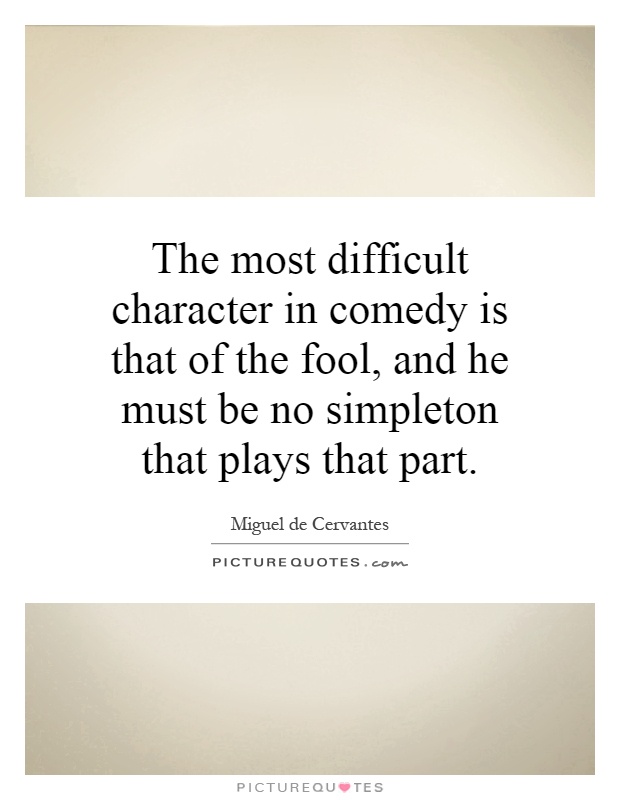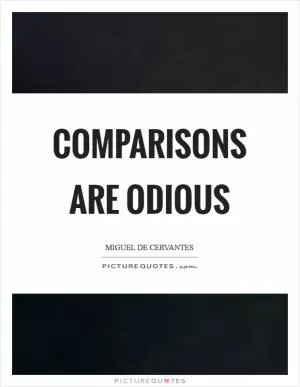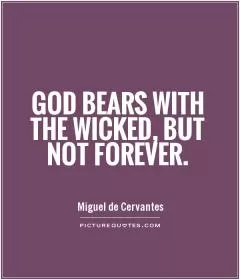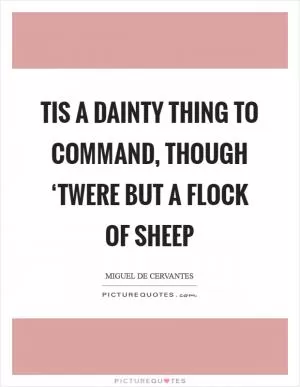The most difficult character in comedy is that of the fool, and he must be no simpleton that plays that part

The most difficult character in comedy is that of the fool, and he must be no simpleton that plays that part
In the world of comedy, the character of the fool is often seen as one of the most difficult to portray effectively. This is because the fool must be more than just a simpleton or a buffoon; he must possess a certain level of intelligence and wit in order to truly engage and entertain the audience. Miguel de Cervantes, the renowned Spanish writer best known for his masterpiece "Don Quixote," understood this concept well and expertly crafted complex and multi-dimensional fools in his works.One of the most famous fools in Cervantes' writing is Sancho Panza, the loyal squire to the delusional knight-errant Don Quixote. While Sancho may initially appear to be a bumbling and naive character, he actually possesses a keen sense of practicality and a sharp wit that often serves as a foil to Don Quixote's grandiose fantasies. Sancho's role as the fool is not just to provide comic relief, but also to challenge and question the absurdity of Don Quixote's actions, making him a crucial and indispensable character in the novel.
Another example of a complex fool in Cervantes' work is Cardenio, a character from his lesser-known play "The History of Cardenio." Cardenio is a young man who is driven to madness by the betrayal of his beloved, Luscinda. Despite his apparent foolishness and erratic behavior, Cardenio is actually a deeply emotional and sensitive character who grapples with complex themes of love, betrayal, and redemption. His portrayal as a fool is not just for comedic effect, but also serves to highlight the fragility of the human psyche and the power of love to both heal and destroy.
Overall, Cervantes' exploration of the fool as a character in comedy goes beyond mere slapstick humor and superficial antics. He delves into the complexities of human nature, using the fool as a lens through which to examine deeper themes of identity, morality, and the human condition. By creating fools that are more than just simpletons, Cervantes challenges both his characters and his audience to look beyond the surface and discover the profound truths that lie beneath the facade of foolishness.












 Friendship Quotes
Friendship Quotes Love Quotes
Love Quotes Life Quotes
Life Quotes Funny Quotes
Funny Quotes Motivational Quotes
Motivational Quotes Inspirational Quotes
Inspirational Quotes